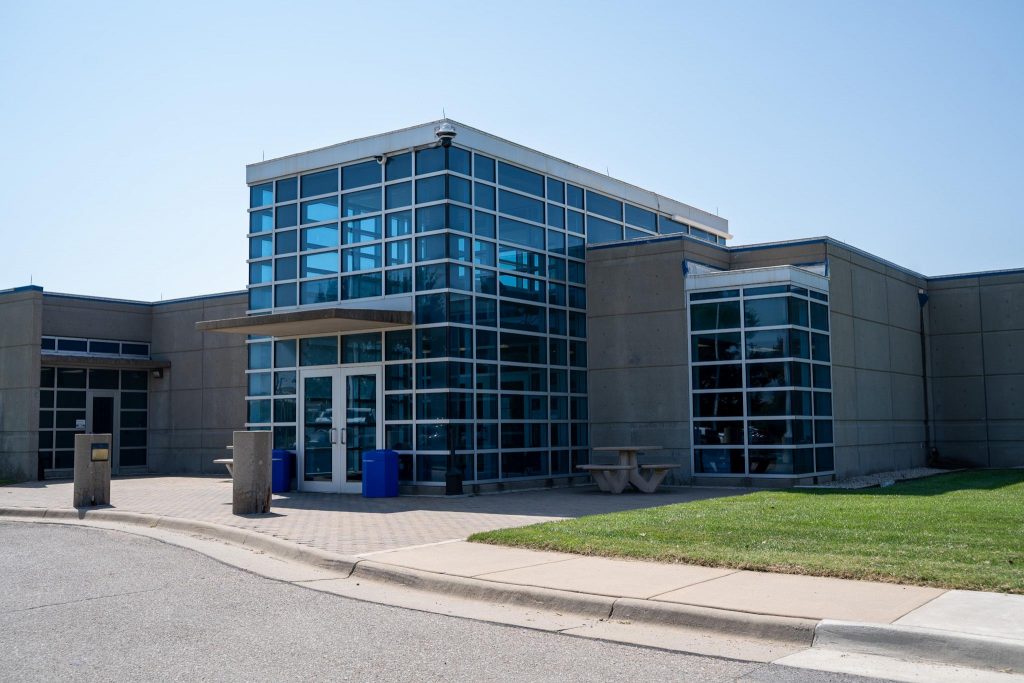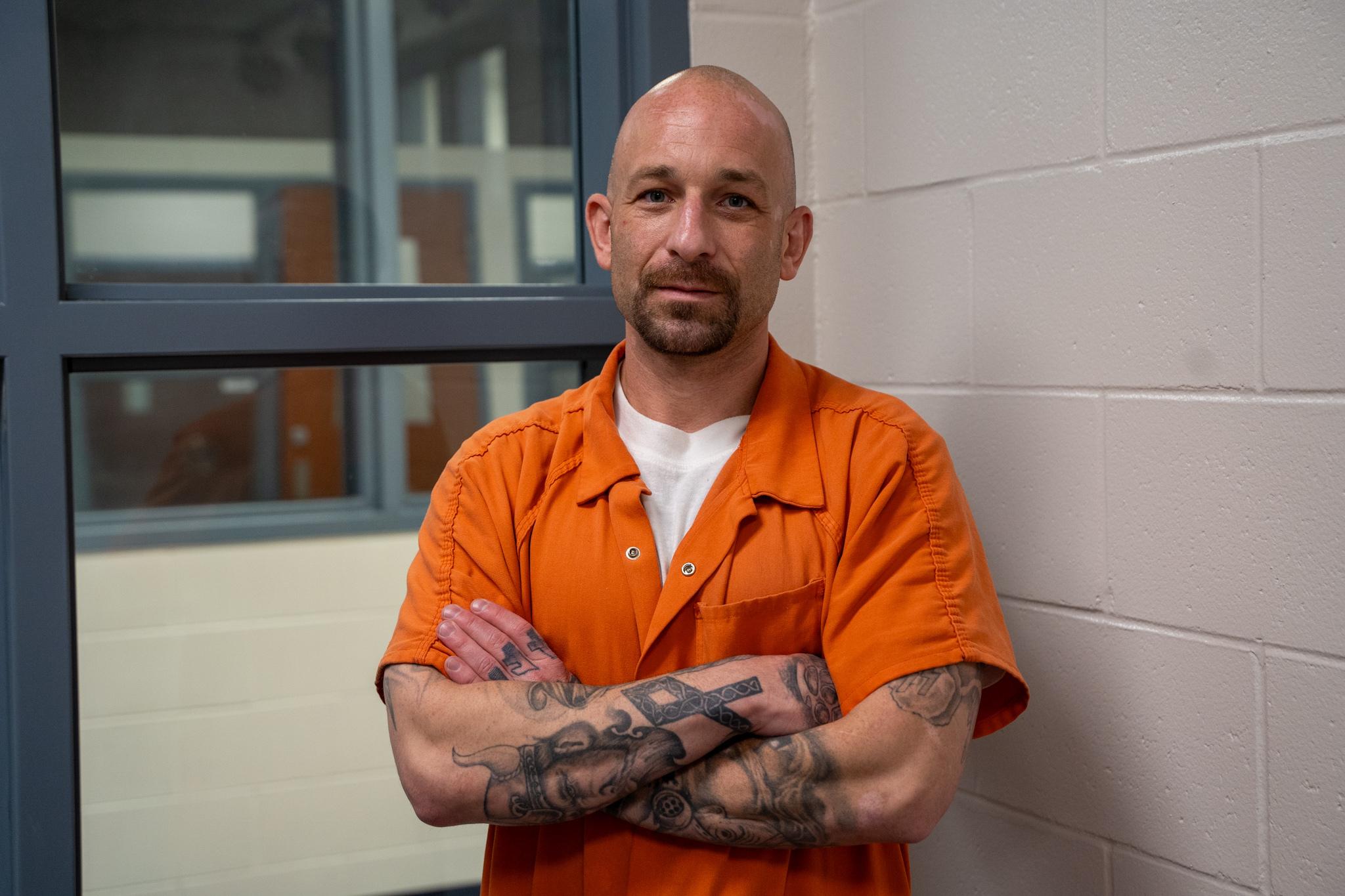Nikole Babb
nbabb@cherryroad.com
“If it helps just one or two people a year, then it’s worth it.”
Lower recidivism rates and successful societal reintegration now seem easier out at the Butler County Detention Facility where additional inmate services are now being offered to offenders in custody.
Butler County Sheriff Monty Hughey says these services can help keep offenders from falling back into the same lifestyle that got them arrested. This concept is echoed by Dustin Blackston, who is currently housed at the Butler County Detention Facility in an exclusive interview with the Times-Gazette.
When Sheriff Hughey was first elected in 2020, he made his intent clear to improve mental health and drug prevention. He reiterated that goal when he was reelected in 2024. In February of this year, those goals reached a new turning point as he was able to integrate mental health and substance abuse counseling services directly into the county jail for offenders to utilize – all at no cost to taxpayers.
The project began in 2021 with several local partners, including the Jail Administrator Larry Reynolds. To lower recidivism, or the act of an offender committing another crime, they first must know how to reintegrate into a society free of their past life, free of bad influence and able to manage life’s challenges without substance use.
“Our hope with the programs we offer is that we will reduce the likelihood of our inmates to offend,” said Sheriff Hughey and Reynolds. “We want to help our citizens reenter the community and be successful and productive.”
It starts early
Not abusing substances may sound easy for many, but that skill is something many offenders don’t have. Abusing drugs starts at an early age for a lot of offenders, offering them the best tool to survive in a dangerous environment. This story is all too familiar to Blackston.
Growing up, Blackston suffered a harsh childhood with absent parents. At just 14 years old, he was kicked out of his home after a disagreement with his father and lived with his friend who turned into a bad influence. Soon Blackston was on the streets dealing in the business of drugs. At just 23 years old, he was found himself in federal prison in Oklahoma in 2010 on drug related charges.
“So, I went to prison the first time in Oklahoma, and at that point, I really I didn’t care – it didn’t affect me,” said Blackston. “Honestly, I got a slap on the wrist.”
Looking back now he realizes the dangerous and survivalist environment he was in is what led to the delay in developing social and emotional life skills.
Ready for change
After years of reoffending in Kansas and Oklahoma, Blackston says he’s ready for change. As he’s currently in custody at the Butler County Detention Facility on U.S. Marshal orders, this federal indictment is his third in Kansas. Although he’s been in this jail before, he says this is the first time he’s received services where the provider is caring and is making a difference.
Blackston took an interest in iron work a few years ago as he was between prison time but couldn’t figure out exactly how to balance his life to keep from using drugs and reverting to his past lifestyle. He’d found a job he can finally enjoy and take pride in. He spent the next several years in prison and jail researching how to get into the iron workers’ union and become a professional but knew reintegrating into society would require more than a stable job.
“I feel like I performed exemplary in that aspect of work,” said Blackston. “But there was so much stuff that I didn’t know and resources that were unavailable to me. I thought that by finding a job and a career and having a legitimate income, that that was going to be my end-all solution to my problems. That really wasn’t the case.”
This is when he said he felt deep introspective change him from within. He began to learn different skills via Edovo, an online learning platform for those in custody. In addition, he’s began to utilize the new services offered in Butler County such as:
-Thrive to Strive, which teaches him life skills for after incarceration
-Classes with South Central Mental Health, (SCMH), counselors who teach coping mechanisms and how to change habitual behaviors
-Addiction recovery classes and peer mentoring guided by El Dorado local organization Substance Abuse Center of Central Kansas, (SACK).
Since beginning these classes, Blackston has also realized his newfound pastime: encouraging others to be a light that escapes the dark path. He can often be found using his free time to host Narcotics Anonymous meetings inside the jail himself, at the request of other inmates. If he isn’t doing that, he’s committed himself to bettering himself 40 hours a week, replacing his civilian job.
“Talking to people and socializing with more people in a positive sort of way that can lead to us having a support network of people that are being positive that we can talk to,” said Blackston. “If we’re bringing people out of a dark path and problems, there’s more people from that pool of resources that we can pull on.”
Even though Blackston is unsure of what awaits him after sentencing, he continues to work towards a better life after incarceration.
Other programs offered
The jail also offers many other life skill classes, including:
-Orion Education and Training – offers free, on-site high school diploma completion
-Anonymous addiction meetings for alcohol and narcotics
-Domestic violence workshops for female inmates through Butler County Safe House
-Addiction recovery services, drugs and alcohol assessments, inpatient/outpatient referrals, counseling, peer mentoring and life essentials SACK
-Group education and support classes on understanding mental health illnesses offered through the National Alliance on Mental Illness
-Counseling, medication management, crisis services, addiction treatment and case management offered by SCMH
-The Thrive program, a 16-week community initiative that focuses on reducing poverty, and the emotional, financial and social well-being
-Weekly Bible studies, worship services, and Catholic services
“SACK and SCMH will help us bridge the gap between release and getting services set up,” said Sheriff Hughey. “Normally, getting appointments and opening a case file can take anywhere from 2-8 weeks and that is the time period where most will reoffend or begin to use drugs again.”
Lessening the time from release to entering treatment can be the change these folk need to turn their life around.
“These programs will have everything set up by the time they’re released from the detention facility,” said Sheriff Hughey. “They will receive counseling, therapy, treatment and even help with getting an ID. Overall it will greatly increase their chances of success.”
All programs are funded directly through the Inmate Commissary Revenue. This revenue is generated by the inmates’ purchasing items at the jail through the inmate store. This can range from a typewriter to other extra items.
At the end of the day, Sheriff Hughey says he wants to see change but understands it will take time.
“If it helps just one or two people a year, then it’s worth it,” said Sheriff Hughey.





